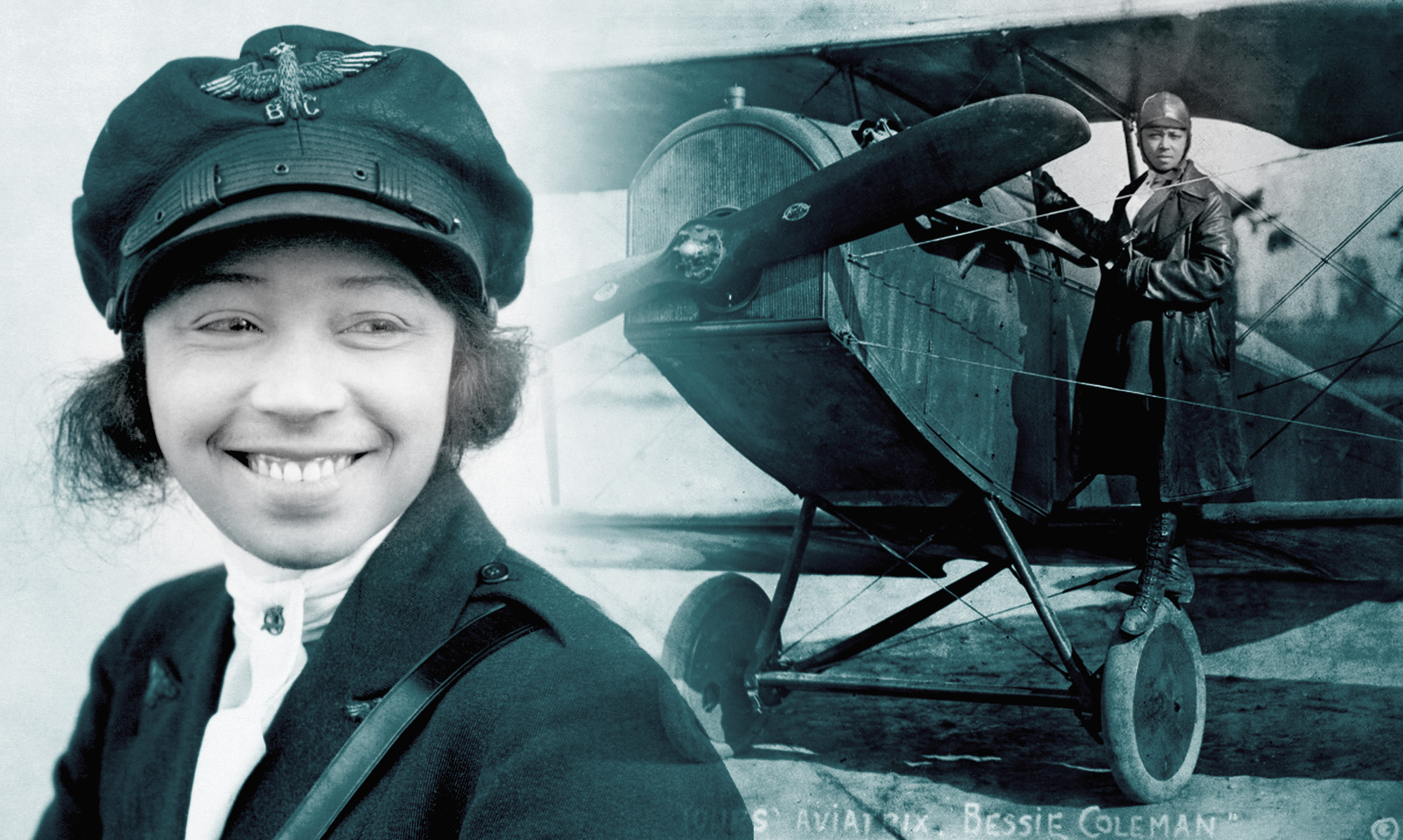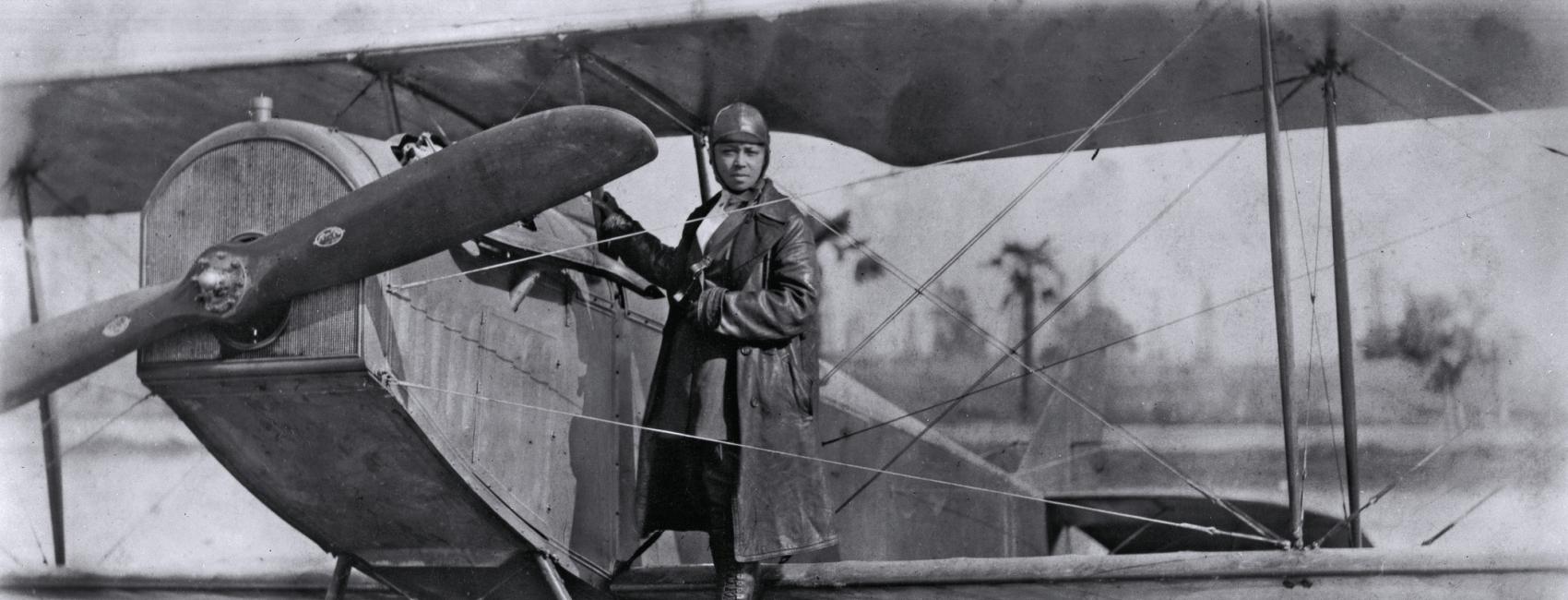
Bessie Coleman, a groundbreaking pilot and inspirational person in aviation history, was born in Atlanta, Texas, on January 26, 1892. She overcame discrimination on the basis of race and gender to become the first African American woman to obtain a pilot’s license, paving the way for many generations of women and minorities to pursue careers in aviation.

Early Life and Challenges:
Growing up in a culture dominated by segregation and restricted possibilities for African Americans, Coleman faced various hurdles. She was the tenth of thirteen children and grew up in a home that valued education. She was motivated and ambitious from an early age. However, racial discrimination kept her from fulfilling her dream of becoming a pilot in the United States.
Pursuing the Dream:
Coleman bravely relocated to France in 1920 to pursue her goal. In France, she enrolled in flight school and received her pilot’s license from the Fédération Aéronautique Internationale in just seven months, making her the first African American woman and Native American woman to do so. Her accomplishment was unprecedented, particularly given the societal restrictions she had to overcome.
Career & Legacy
Coleman rose to prominence after returning to the United States, dazzling audiences with her daring aerial performances. Known as “Queen Bess,” she defied prejudices and inspired many by demonstrating that with effort and endurance, anyone can overcome obstacles.
Coleman hoped to utilize her celebrity to inspire other African Americans, particularly women, to achieve their goals and overcome barriers. She fought for the inclusion of African Americans in aviation and delivered talks urging young people to pursue professions in aviation and other areas.
Tragically, Coleman’s life was cut short at the age of 34 in a plane crash during a test flight in 1926. Despite her untimely death, her legacy lived on, inspiring generations of aviators and serving as a testament to the power of perseverance, courage, and determination.
In honor of Bessie Coleman
Bessie Coleman’s contributions to aviation and pioneering spirit are still being celebrated today. She has received numerous awards, memorials, and tributes, including the establishment of the Bessie Coleman Aero Club and the annual Bessie Coleman Fly-In.
Coleman was posthumously inducted into the National Aviation Hall of Fame in 1995, recognizing her significant contributions to aviation history and long-term impact on the world of flight.
Conclusion:
Bessie Coleman’s story is a strong reminder of the necessity of breaking down barriers, pursuing one’s aspirations, and inspiring others to follow suit. Despite adversity, she remained resilient and tenacious, leaving an unforgettable impact on aviation history and inspiring countless more to take to the skies.
Her legacy continues to inspire and encourage people all across the world, reminding us that with courage, dedication, and perseverance, everything is achievable.










